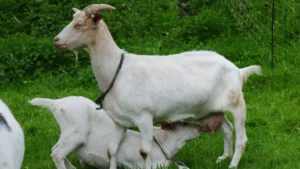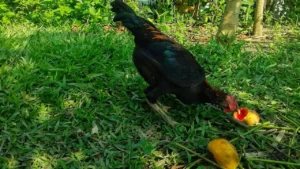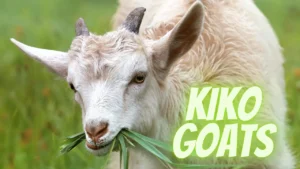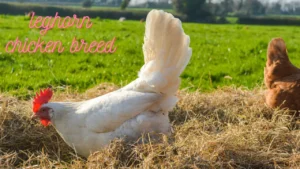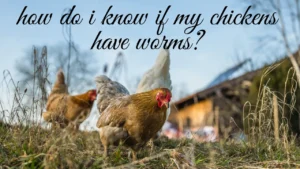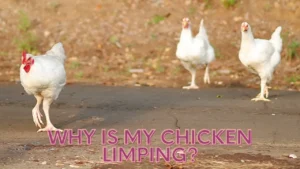Raising baby chicks can be a rewarding experience. These cute feather balls quickly become part of the family offering fresh eggs and joy in the lawn or garden. As low maintenance companions baby chicks thrive when provided with the right diet. It’s important to feed them nutrient-dense foods that help them grow strong and healthy. The brooder is their first home and for the first six weeks ensuring they have proper access to food, water and a heat source is key to their development.
During the first few weeks baby chicks need to eat and drink constantly. Their diet should be versatile, offering the best nutrients to ensure they develop properly. A heat panel or light source will help them find their food easily especially since they cannot see in the dark. Proper care and attention during this period set the foundation for their long-term health and growth. Follow essential tips to make sure your chicks are ready to transition into the flock with ease, growing strong and happy.
What Do Baby Chicks Eat?
If you’re curious about which homemade foods can serve as chick feed try adding these nutrient-packed options:
1. Insects and Worms
Baby chicks love pecking at the ground to find insects and worms which provide them with valuable protein. You can also offer them red worms, mealworms and even crickets to support their growth. These insects are rich in essential nutrients including carbs and fats which are necessary for their development.
However, it’s important to provide these in moderation to avoid overloading their systems. Offering a variety of different types of insects can be an excellent way to give your chicks a balanced diet.
2. Strawberries
Baby chicks enjoy eating fruit especially strawberries which are packed with minerals like potassium, copper, iron and magnesium. These berries also provide important vitamins including vitamin B and are rich in anti-inflammatory antioxidants that help boost their health.
3. Lettuce
Baby chicks can safely eat certain types of lettuce, like romaine lettuce, turnip greens, chard and kale. These leafy greens are nutritious packed with potassium, magnesium, phosphorus, folate and vitamin K. However, avoid iceberg lettuce as it may cause diarrhea in your chicks.
4. Tomatoes
Tomatoes are a great snack for baby chicks because they contain important vitamins like vitamin K, fiber, potassium, and folic acid. However, avoid giving them the plants, leaves or flowers of the tomatoes as they contain a poisonous substance called solanine. Always ensure to remove these before feeding your chicks in their coop.
5. Grass
Baby chicks may not show much interest in eating grass when they are only day-old chicks or week-old chicks. However, owners often give them the option to encourage foraging which helps develop their natural instincts. Adult hens tend to peck at the grass and insects sometimes eating the smaller pieces they find.
6. Oatmeal
Baby chicks can enjoy both warm oatmeal and raw oats as they are packed with protein, vitamins and minerals to support healthy growth. Adding plain yogurt or birdseed to their oats provides extra nutrients making it a great treat for them.
7. Bananas
Baby chicks enjoy ripe and overripe bananas which provide magnesium, copper and healthy carbs for energy. These fruits are also rich in pyridoxine and vitamin B6, supporting growth. Since their sugar content increases as they ripen it’s best to feed them sparingly.
8. Apples
Baby chicks can enjoy apples but it’s best to chop them into small pieces and remove the seeds for easy consumption and digestion. Applesauce is a great alternative that provides carbs, fiber, potassium and vitamin K to support their growth.
9. Watermelons
Baby chicks love pecking at fresh watermelon on hot days as it provides hydration and a sweet flavor. While they can eat the inside of the fruit avoid giving them the seeds and rinds since they are hard to digest. Though watermelon is a tasty treat it offers fewer essential nutrients than regular chick food.
What Key Nutrients Do Baby Chickens Need?
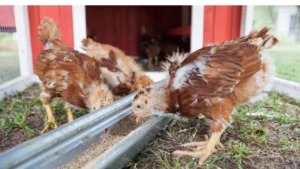
Young chickens need a diet richer in nutrients compared to adult chickens making it essential to provide a well-balanced intake. Here’s what to feed chicks and their nutritional benefits:
Vitamins: Poultry need both fat-soluble vitamins and water-soluble vitamins to grow strong and healthy. Baby chickens require vitamin A, vitamin D, vitamin E and vitamin K, along with niacin, folic acid, biotin, thiamine and riboflavin. Unlike humans they do not need vitamin C, as their bodies naturally produce it.
Protein: Baby chicks need a diet with 18% to 20% protein to support their muscles, strength, and bone integrity during early developmental stages. As they grow older their protein intake should be tapered to 16% by 19 weeks to maintain balanced growth.
Minerals: Baby chicks need calcium, phosphorus, magnesium, iron and copper in their diet to grow strong bones and stay healthy. These minerals support overall development and prevent deficiencies.
Grains: Baby chickens need grains like corn, wheat, and soybean meal to stay strong. These grains provide protein, vitamins, oil and energy making them a key part of healthy poultry feeds.
Fats: Baby chickens need healthy fats to grow strong. Their fat content comes from oils rich in linoleic acid, a fatty acid that helps break down essential vitamins and minerals so they can receive full benefits from their diet.
To grow strong and healthy baby chicks need a well-balanced feed that provides at least 90% of their nutrition, while the remaining 10% can come from pasture. Proper nourishment is essential for poultry, and they also require a constant source of clean water. Chickens tend to drink nearly three times their weight in water daily, making hydration just as important as their diet. A good water-to-chicken ratio is about one quart of water per four chicks to keep them well-hydrated and thriving.
Key Nutritional Foods for Growing Baby Chicks
You can provide the most nutritious option for your baby chicks by feeding them organic chicken starter feed. While the foods mentioned earlier are beneficial, it’s important to recycle leftovers carefully, as an imbalance in nutrients can occur either too much or too little.
Organic chicken starter feed contains a rich blend of essential nutrients including:
- Natural carbohydrates, such as corn, soybean meal and wheat
- Pure soybean oil derived from organic sources
- Calcium compound for bone strength (calcium carbonate)
- Zinc supplement (zinc sulfate)
- Copper supplement (copper sulfate)
- Calcium iodate for proper metabolism
- D3 vitamin to support bone development
- E vitamin for immune function
- A vitamin for vision and growth
- B12 vitamin for energy production
- Riboflavin for cellular function
- Folic acid for healthy growth
Choosing organic chicken starter feed instead of non-organic options guarantees that your baby chicks get non-medicated and non-GMO nutrients. Since natural feeds have minimal or no cheap filler products they provide better nutritional value ensuring both cost-effectiveness and a healthier lifestyle for your chickens.
What Should I Give My Baby Chicks to Eat?
Raising chicks requires special attention to their food ensuring they receive the best nutrition for healthy growth. A top choice is chick crumble, a finely ground feed that is easy to digest and packed with essential nutrients. Available at any farm supply store or local store this feed supports the digestive system immune system and respiratory system.
Many poultry keepers opt for non-medicated options to avoid unnecessary additives. Adding a Baby Chick Care Kit to their diet can further promote early growth as it contains essential supplements like First Peep which helps in their first few weeks by strengthening their overall health.
To further enhance their digestive health and nutrition consider adding natural supplements:
- Prebiotics – Supports gut bacteria for better digestion.
- Kelp – Provides natural support and essential minerals.
- Oregano essential oil – Boosts immunity and promotes healthy feeding.
- Sprinkle supplements – Enhances feed with extra vitamins and minerals.
- Strong foundation – Ensures proper development and steady growth.
Whether raising chicks on a farm or in a backyard offering them the right chick feed and care will help them thrive and grow into healthy chickens.
What Foods Should Be Avoided for Baby Chicks?
Certain grocery items are better suited for the compost bin. Baby chicks should not be fed the following foods:
- Onions: Feeding raw onions to chickens is dangerous as they contain sulfoxides which can destroy their red blood cells leading to serious health issues. Even small amounts can be harmful so it’s best to avoid onions in their diet.
- Eggplant: While chickens can safely eat eggplant flesh in moderation, its stems, leaves and flowers contain solanine, a harmful toxin that can negatively affect their health. It’s best to remove these parts before feeding to keep them safe.
- Beans: Raw beans and dried beans are fatal to chickens of all ages if not prepared properly. Always soak them in cold water for at least five hours and cook them properly first before adding them to your chicks’ feed.
- Moldy Bread: Feeding moldy food to chickens can harm their health, as there is no way to tell if the mold is helping or hurting them. To keep them safe it’s best to avoid it altogether even if some molds seem good.
- Chocolate: Chocolate contains theobromine and caffein which are toxic to chickens and many other animals. The darker the chocolate the more dangerous and even accidental crumbs can lead to major damage if consumed in too much quantity making it potentially fatal.
- Rhubarb Leaves and Stems: Feeding rhubarb leaves to hens is dangerous because they contain oxalic acid which causes severe liver damage. Even small amounts can be harmful so it’s best to avoid them entirely.
- Avocado Fruit and Leaves: The skins and avocado pits contain persin, a toxic substance that can harm chickens. While they can eat avocado flesh make sure all traces of the skin are removed before feeding.
- Fermented Cucumbers: Pickles contain high levels of salt and preservatives which can be harmful to chickens if consumed in large quantities. While they may eat small amounts it’s best to avoid them to prevent health issues.
- Peanut shells: While nuts can be nutrient-rich in moderation their shells are tough and dense which can cause serious digestive issues for chicks. Always ensure they contain no salt or added oils before feeding.
Most chickens naturally stay away from toxic foods. If your baby chicks happen to ingest harmful substances and show signs of illness provide them with electrolytes and extra nutrients to support recovery. In mild cases they can gradually heal on their own.
Tracking Chick Health via Diet: What to Do If a Baby Chicken Stops Eating or Drinking

Contrary to common belief baby chicks typically don’t need to eat or drink during the first day or so after hatching. However, if you notice a chick looking weak, here are a few steps you can take:
Providing Heat and Comfort
Make sure baby chicks and hatchlings are warm enough to stay healthy. If they seem weak they may lack the energy to find the warmth themselves. Use a heat lamp to help them regulate their body temperature and check that it stays between 95 and 97 degrees F at all times.
Applying
To prevent dried droppings from sticking to baby chicks’ bottoms check them daily for pasting. This can be caused by low-quality feed fluctuating temperatures or stress. It’s important to ensure that there is no pasting to keep your chicks healthy.
Hydration
Make sure your baby chicks have plenty of clean room-temperature water to keep them hydrated, as they can often feel thirsty before they get hungry. For weak chicks try adding sugar water to give them an energy boost though it provides no nutrition. You can also encourage them to drink by gently dipping their beaks into the water.
If baby chickens stop eating or drinking it could be a sign that they’re not getting the right nutrients. Ensure they have a constant supply of organic chicken starter feed and refill their supply when needed. It’s important to separate smaller chicks from older chickens as the older ones may become aggressive and bully them away from food making sure every chick gets an equal share of chick food. Keep a close eye on their eating habits to ensure they’re healthy.
How Much Food Do Baby Chicks Need?
Baby chickens need a constant supply of organic chicken starter feed to provide the necessary nutrients for growth. Ensure they have enough food and refill their supply as needed. It’s best to separate smaller chicks from older or aggressive adult chickens to prevent bullying and ensure each chick gets an equal share. Keep a close eye on their eating habits especially for the first two months.
Assessing the Quality and Safety of Chick Feed
When selecting baby chicken food it’s important to pick the right feed that is designed for chicks. Chick starter in the form of crumble works well with their small baby beaks and developing digestive systems. Homemade feed may lack the proper measurements and specific nutrients needed to keep your beloved brood happy and healthy, so always look for the best option in chicken feed to ensure the best benefits for your chicks.
Fit and Healthy Chicks: Feeding your chicks organic feed reduces their risk of diet-related issues since it’s free from chemicals, toxins, additives and antibiotics making them less prone to health problems.
Better nutrition: Feeding organic chicken feed provides better nutrition by offering a higher nutritional value with significant quantities of omega-3s, vitamins and minerals helping chicks grow stronger and healthier.
Improved taste: Organic feed often tastes better which keeps chicks happy and excited for their meals ensuring they are more eager to eat and enjoy their food.
Increased Safety: Organic feed is free from harmful pollutants and its production is environmentally safe making it a better choice for your chickens. Choosing a non-GMO option is also beneficial for both you and your flock ensuring a healthier safer diet.
Medicated or Non-Medicated Chick Starter
When choosing chick starters you have the option of medicated or unmedicated feed. Medicated feed contains a coccidiostat which helps prevent coccidiosis, a common chicken disease caused by the coccidia parasite. While healthy adult birds can cope with a coccidia infection, it can be fatal to chicks. The medication in medicated feed supports their immunity and helps them fight the infection making it a good option for chicks.
Medicated chick feed
- Medicated chick feed contains a low-dose coccidiostat like amprolium which helps prevent coccidiosis in chicks.
- It should never be fed to chicks that have been vaccinated against coccidiosis as the medication and vaccine will cancel each other out.
- Medicated feed should also be avoided for adult laying hens if you are consuming the eggs.
Unmedicated chick feed
- Unmedicated chick feed does not contain a coccidiostat making it suitable for chicks that have been vaccinated for coccidiosis.
- This type of feed may leave chicks vulnerable to coccidiosis if they are exposed to the parasite.
- It can be a good option if adult laying hens are able to steal the chicks’ feed.
When Are Chicks Ready for Treats and Scratch?
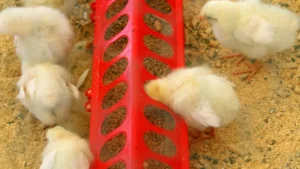
When chicks are about five or six weeks old they’re ready to start eating treats and scratch. Before this, it’s important to stick with chick crumble and First Peep. Once you begin introducing new foods make sure to offer chick grit to help them digest their snacks. It’s a fun part of raising baby chicks, and if you’re doing it right your whole family will be involved and have a blast watching the chicks grow.
FAQs About What Do Baby Chicks Eat?
1. What should baby chicks eat in the first few days?
In the first few days baby chicks should be fed chick crumble or First Peep to provide them with the right nutrients and support healthy growth.
2. Can baby chicks eat regular chicken feed?
No, baby chicks need special chick starter feed which is designed for their delicate digestive systems and provides the necessary nutrients for proper development.
3. When can I start giving treats to baby chicks?
Baby chicks can start eating treats like scratch around five to six weeks of age, once they’ve adjusted to their basic chick feed.
4. Do baby chicks need extra food besides chick starter?
No, baby chicks should primarily have chick starter feed; additional foods like treats or scratch should be introduced later to avoid digestion issues.
5. Can I feed my chicks organic food?
Yes, organic feed is an excellent choice for baby chicks, as it provides higher nutritional value without harmful chemicals or additives.
Conclusion
Understanding what baby chicks eat is essential for their healthy development and growth. Starting them off with the right feed such as chick crumble or First Peep, ensures they get the necessary nutrients to thrive. As they grow, you can gradually introduce new foods like treats and scratch but always remember to provide chick grit to aid digestion. Providing the right balance of nutrition will set your baby chicks on the path to becoming strong and healthy adult chickens.
By choosing organic feed and being mindful of their dietary needs you can avoid potential health issues and promote a healthy and happy flock. Whether you’re raising chicks for the first time or are an experienced poultry keeper offering the best chick starter feed and following proper feeding guidelines ensures their well-being. Taking the time to provide them with the right food and care will reward you with happy, thriving chickens.

